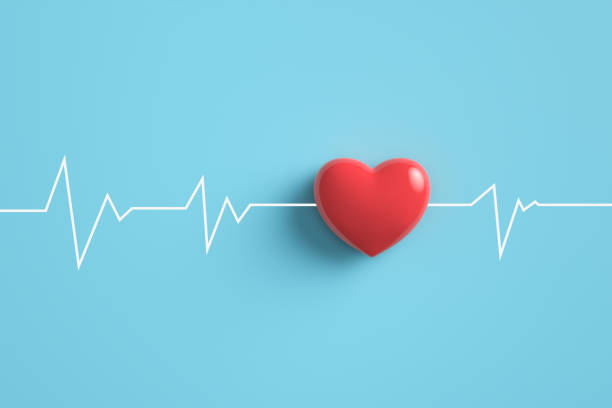03 Feb 2026
Rhinoplasty Revision Surgery in Mohali: Cost When Your First Nose Job Fails


Dr. Vikram Arora
22 Jun 2025
Call +91 80788 80788 to request an appointment.
A heart attack, also known as a myocardial infarction, is a serious medical condition that occurs when blood flow to a part of the heart is blocked. The heart muscle requires a constant supply of oxygen-rich blood, and when this flow is interrupted, the affected heart tissue can become damaged or die. Timely diagnosis and treatment are crucial to improve outcomes for patients suffering from a heart attack. At Livasa Hospitals Mohali, we prioritize urgent cardiac diagnosis, providing access to critical tools such as the ECG test for heart attack.
This blog aims to explore the importance of heart attack ECG, what to expect during the diagnosis, and how our emergency cardiac services in Punjab cater to patients experiencing heart issues. Understanding how an ECG test works and recognizing the symptoms of a heart attack can empower individuals to seek help promptly, potentially saving lives.
Heart attacks usually result from coronary artery disease, where the arteries supplying blood to the heart become narrow due to plaque buildup. Risk factors such as high cholesterol, hypertension, smoking, diabetes, obesity, and a sedentary lifestyle can significantly increase the chances of a heart attack. Additionally, stress and genetic predisposition may play roles in elevating risks.
Common symptoms of a heart attack include:
It’s vital to recognize these symptoms and seek emergency cardiac services immediately, as prompt treatment can mitigate damage to the heart muscle.
An electrocardiogram (ECG) is a critical diagnostic tool used to assess the electrical activity of the heart. It records electrical signals, allowing healthcare professionals to evaluate heart rate, rhythm, and any potential anomalies. An ECG is non-invasive and typically takes only a few minutes to complete, making it a valuable first step in emergency cardiac diagnosis in Mohali and beyond.
During the procedure:
The ECG test is particularly important in emergency settings, such as when patients present with chest pain, as it can help determine whether the pain is related to a heart attack or another issue.
An ECG is essential in diagnosing a heart attack because it provides immediate insight into the heart's electrical activity. The presence of specific changes on the ECG can indicate that a heart attack is occurring or has occurred. Livasa Hospitals utilizes advanced ECG technology to deliver efficient and accurate results for patients in Mohali and Punjab.
Key information derived from an ECG regarding heart attacks includes:
Such information allows cardiologists to make timely and accurate decisions regarding further diagnostic testing, interventions, or treatments.
While the ECG provides critical initial data for diagnosing a heart attack, additional tests may be required to confirm the diagnosis and assess the extent of damage. At Livasa Hospitals Mohali, we ensure our patients receive comprehensive cardiac evaluations, which may include:
| Diagnostic Test | Purpose | What to Expect |
|---|---|---|
| Cardiac Enzyme Test | Detects protein levels that indicate heart muscle damage. | A blood sample will be taken, generally multiple times over a few hours. |
| Coronary Angiography | Visualizes coronary arteries to check for blockages. | A contrast dye will be injected, followed by imaging studies. |
| Echocardiogram | Uses sound waves to visualize heart structure and function. | A gel is applied to the chest, and a probe is moved to capture images. |
These tests complement the ECG findings and provide a more comprehensive picture of an individual’s cardiac health.
The treatment of a heart attack depends on the severity of the attack and the extent of damage to the heart muscle. Immediate treatments aim to restore blood flow to minimize heart damage. At Livasa Mohali, our cardiac care specialists are dedicated to providing tailored treatment plans, which may include:
Early, effective treatment can significantly alter the prognosis and improve quality of life for heart attack survivors, emphasizing the role of quick diagnostics like an ECG in saving lives.
Heart attacks represent a significant health concern globally, and understanding the symptoms, initiating timely treatment, and leveraging diagnostic tools like the ECG can make a difference between life and death. At Livasa Mohali, we are committed to providing leading emergency cardiac services in Punjab, ensuring that our patients have access to the best care possible during critical situations.
Remember, recognizing the signs of a heart attack and acting quickly to seek help could save your life or the life of someone you love. Early detection and swift treatment are key.
If you or someone you know is experiencing symptoms of a heart attack, do not hesitate to call for emergency care or visit Livasa Hospitals in Mohali for comprehensive cardiac assessment and treatment.
Rhinoplasty Revision Surgery in Mohali: Cost When Your First Nose Job Fails
Plastic Surgery After Massive Weight Loss: Body Contouring Packages in Mohali
ENT + Cosmetic in Mohali: Septoplasty for Breathing with Cosmetic Rhinoplasty Offers
Livasa Healthcare Group Corporate Office,Phase-8, Industrial Area, Sector 73, Sahibzada Ajit Singh Nagar, Punjab 160071
| Mohali | +91-99888 23456 |
| Amritsar | +91-99887 49494 |
| Hoshiarpur | +91-99883 35353 |
| Nawanshahr | +91-75081 82337 |
| Khanna | +91-98888 05394 |